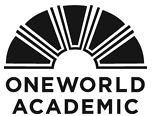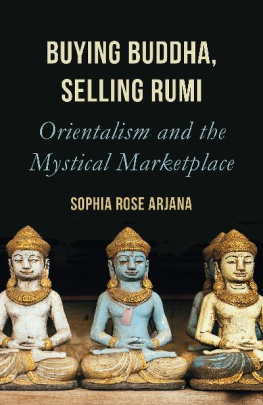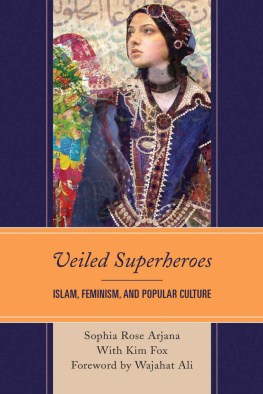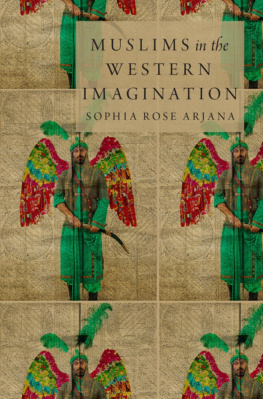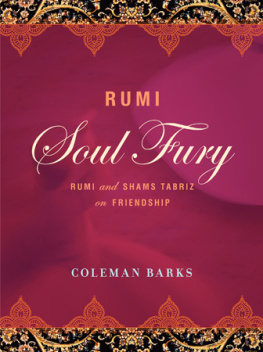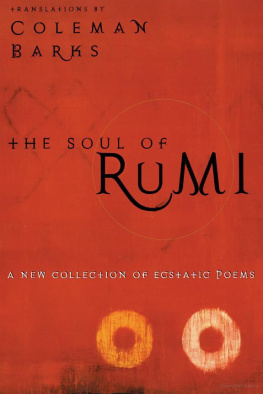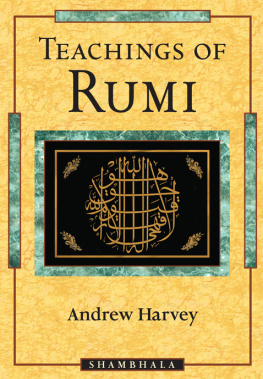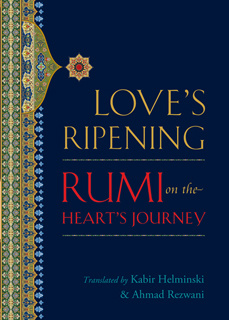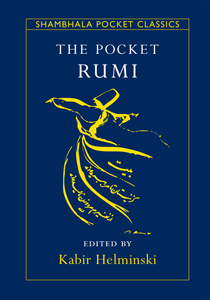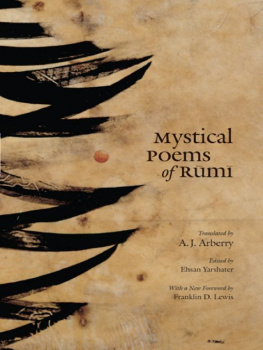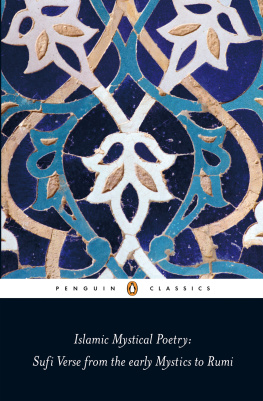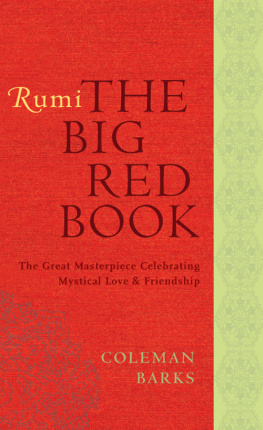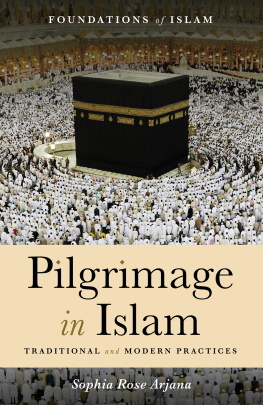Praise for Buying Buddha, Selling Rumi
Sophia Rose Arjanas Buying Buddha, Selling Rumi is a fascinating and wholly engrossing exploration of how mysticism, as we know it in the West, circulates as a modern-day product of colonial structures of power. With deft prose, Arjana skillfully illuminates the historical invention of what she calls modern mystic-spirituality, which is sourced from the Orient/East, and specifically from the teachings and traditions of Hinduism, Buddhism, and Islam. From the Dalai Lama to Eat, Pray, Love , tantric sex to Burning Man, and yoga to spiritual tourism, Arjana expertly exposes how Orientalist logics shape the ways Westerners have manipulated, watered down, and come to consume Eastern religions to bolster their own individual physical, emotional, and/or psychological health. While every chapter is illuminating, especially cogent is Arjanas analysis in the chapter Rumimaniacs, which grounds Sufism in Islam and examines Rumis (who was, undeniably, Muslim) popularity as the best-selling poet in the U.S. Buying Buddha, Selling Rumi is a much-needed interrogation of our notions of the mystical, and an important read for anyone interested in the intersections of religion, culture, colonialism, and capitalism in the twenty-first century.
Sylvia Chan-Malik, Associate Professor, Departments of American Studies and Womens and Gender Studies, Rutgers, The State University of New Jersey
In Buying Buddha, Selling Rumi , Sophia Rose Arjana provides a wide-ranging overview of the ongoing power and cultural significance of long-standing Western Orientalist tropes about the Mystic East. This is an important work for anyone working on Asian traditions and their contemporary appropriation, transformation and commodification.
Richard King, Professor of Buddhist and
Asian Studies, University of Kent
Both scholarly and readable, Buying Buddha, Selling Rumi deepens our understanding of the way the West appropriates Eastern religion, excising elements that offend, and using an idealized picture of non-modern and non-rational religion to tell a story about Western desires. Using multiple examples, Sophia Rose Arjana describes the muddled Orientalism that romanticizes and conflates Eastern religions, turning them into a source of spiritual products and disconnected experiences to be marketed to hip Westerners.
Jeffrey H. Mahan, Ralph E. and Norma E. Peck Professor of Religion & Public Communication, Iliff School of Theology
BUYING BUDDHA, SELLING RUMI
Orientalism and the Mystical Marketplace
SOPHIA ROSE ARJANA
For Wahyudin
CONTENTS
This journey began nearly a decade ago in a doctoral seminar I took with Ted Vial, one of the smartest people I know. Ted, who was also my colleague for five years when we taught at the same institution, assigned Richard Kings great book on Orientalism and India, which I have read and reread numerous times over the years. In another seminar, we read Charles Taylors magnum opus on secularism and modernity. These two books, alongside many others, inspired this project, which looks at the ways that people living in modernity do religion while calling it something else mysticism or spirituality and the roles that Orientalism and the religious marketplace play in their articulations of human experience.
I was helped by many people along this journey who read drafts, made suggestions, and provided encouragement. I owe a special debt to Blayne Harcey, my writing buddy for many years, who read a draft of this book while en route to India and sent feedback from his temporary home in Nepal. To my other readers, Rose Deighton, Cyrus Ali Zargar, Julie Todd, Ted Vial, Emran El-Badawi, thank you, and to Jean Charney, my longtime editor, I am grateful for your friendship and meticulous critiques.
As I launched into the writing of this book, I received support from many of the wonderful people at Western Kentucky University. Among these, I would like to especially thank Jeffrey Samuels, my department head and colleague, our steadfast dean, Larry Snyder, and colleagues Andrew Rosa, Audrey Anton, and Elizabeth Gish.
Finally, I would like to thank my mom, my dear husband, and our children. Their love makes the world a better place.
In the centre of a Catholic village of around 800 households in northern Germany is a small roadside shrine of the Virgin with the i nfant. Behind it stands a building with a bright red roof, through the centre of which rises a Hindu temple tower. It houses a German Heilpraktiker (healing practitioner) and his spa. One enters an enclosed courtyard through a curtain of multicoloured glass beads to be greeted by soft music, with Ayurvedic treatment wings for men and women on either side.
Harish Narindas
The search for enchantment in the modern world rarely entails the decades-long religious labor of the early Christian desert fathers or the Buddhas lifetime struggle to achieve enlightenment. More commonly, modern mysticism is characterized by a kind of dilettantism, a lifestyle that consists of a CD of Deepak Chopra meditations on Rumi, a subscription to Oprahs magazine, and a yoga retreat in Bali. As we shall learn, Orientalism often plays a powerful role in these products and practices, seen in everything from Buddhist sex toys to the mystical tourism found in Thailand, Indonesia, and Morocco.
This book examines mysticism from several vantage points: historically, as a concept invented in Western academia; theoretically, in its function as an arm of capitalism; critically, through its identification with Orientalism and other colonial projects; and materially, through many of its products and practices. The first three chapters deal with these historical, theoretical, and critical issues. The last three chapters focus on the material culture of popular mysticism, its ties to Orientalism, and the ways it is expressed in popular television and film. Later, in this introduction, I will outline these chapters, but first I want to foreground my work by touching upon some of the forces that shape modern mysticismcapitalism, colonialism, and Orientalism.
Colonization, Capitalism, and Modernity
Mysticism and its entanglement with the Orient is seen broadly in the consumer culture of North America and Europe. Popular code words like mysticism and spirituality are used to sell products and experiences to the bliss chique, casual Sufi, imitation Hindu, and hipster Buddhist. This is modern mysticism.
The search for religious meaning in modernity often involves the colonization of other cultures. This is often unintentional and unconscious, where consumers browse a kind of mystical flea market in which the bright, shiny, and colorful objects stand out. The Orient is, for historical and aesthetic reasons we shall explore in the following chapters, a confused hodgepodge of images and cultures, symbols, and traditions. The phenomenon I call muddled Orientalism sustains a marketplace populated with mystical and spiritual products and experiences. Modern mysticism exists in a system of cultural exchange born of colonial encounters and transformed into entrepreneurism, dilettantism, and spiritual voyeurism through the creative force of Orientalism.
The twenty-first century is characterized by capitalism, globalism, and consumption, all affecting the ways in which individuals explore and experience religion. Scholarship on religion and consumption has often focused on individuals consuming products that are identified with a specific tradition. For instance, American Hindus produce a large number of religious goods and also are active consumers of religious items. As one scholar notes:
